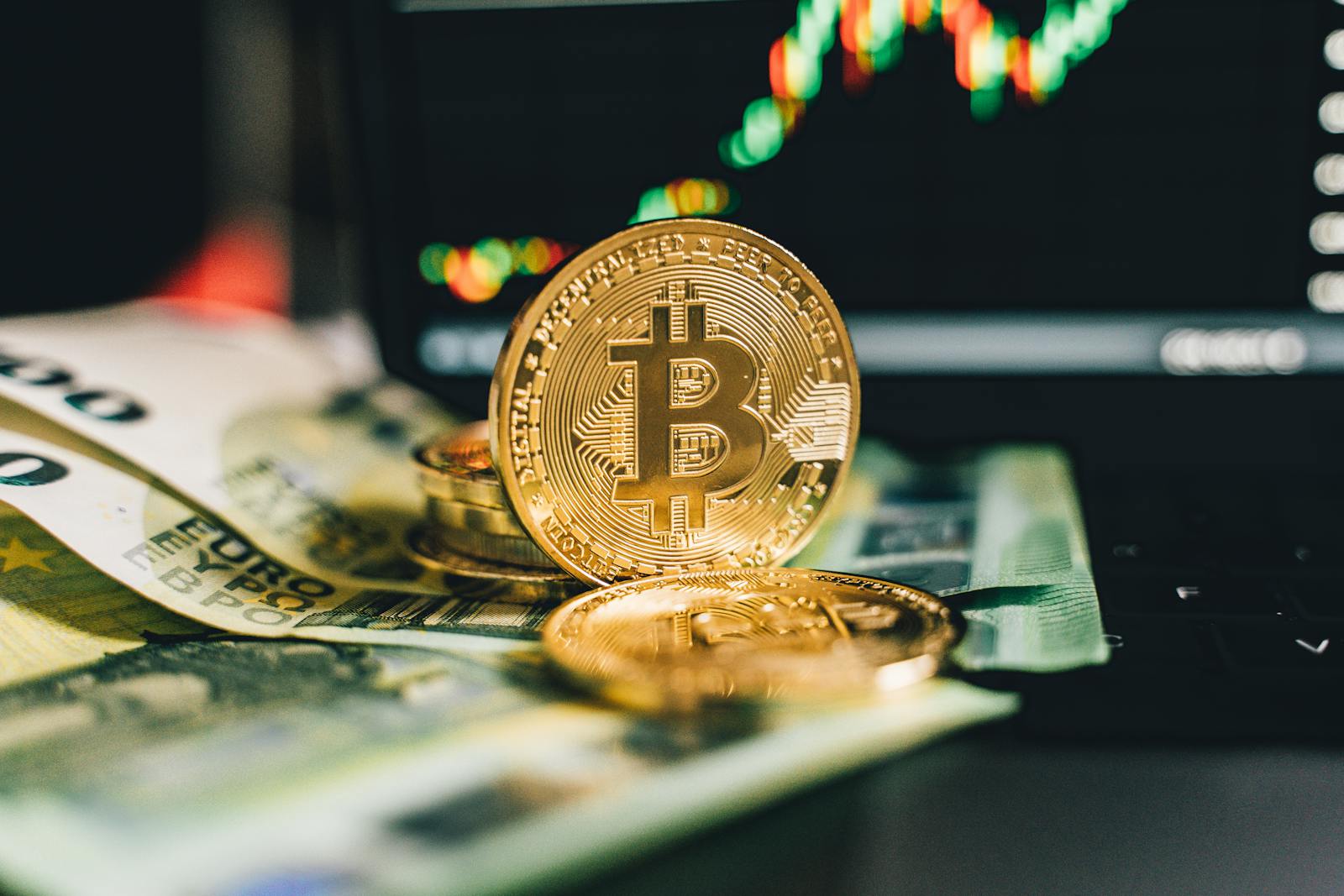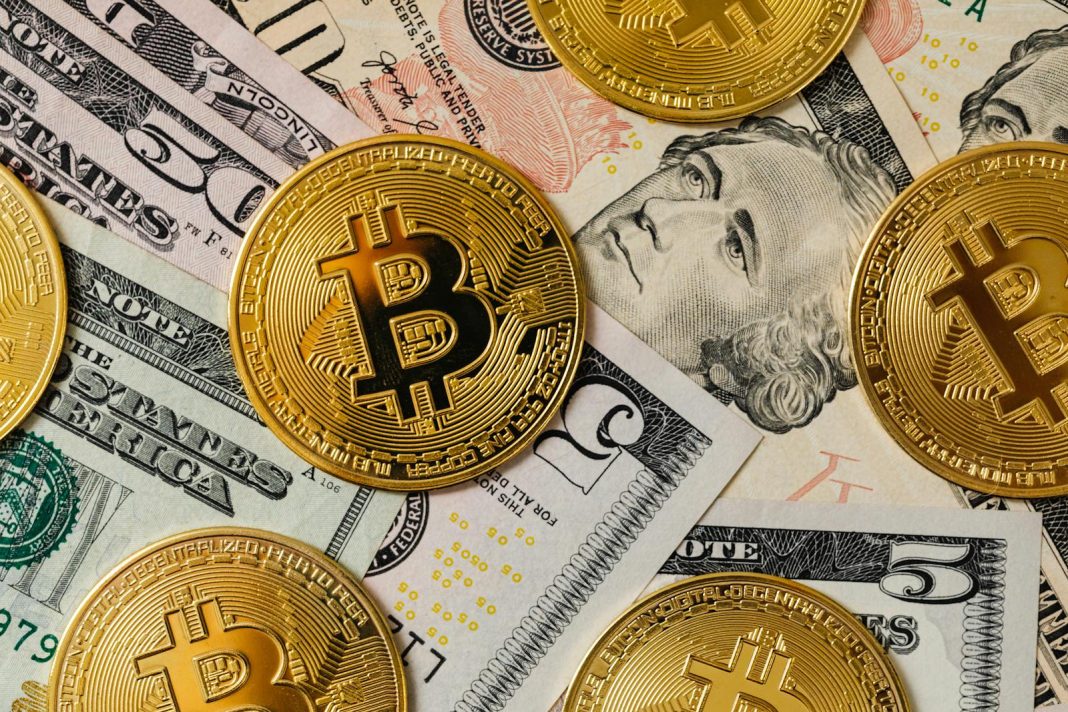Welcome to the world of travel where exploration meets innovation! Imagine standing at the precipice of a grand adventure, only to be bogged down by the pesky nuances of currency exchange. It’s a scenario all too familiar for globetrotters. As we embark on this journey through the blog post, let’s unpack the traditional methods of currency conversion that travelers have been tethered to for years and explore the burgeoning popularity of Bitcoin as a digital alternative with its array of potential benefits.
The Traditional Approach to Currency Conversion
Travelers have long navigated the labyrinth of currency exchange, grappling with fluctuating exchange rates, hefty fees, and the inconvenience of locating trustworthy currency exchange booths. The traditional path often leads to banks or airport kiosks, where the comfort of familiarity sometimes comes at the cost of less favorable rates and additional charges. Each transaction is like treading through a marketplace where the price of your currency vacillates with the ebb and flow of international markets.
Bitcoin: A Currency Without Borders
Enter Bitcoin, the digital forerunner in a financial revolution, increasingly catching the eye of the modern traveler. Bitcoin’s allure lies in its nature as a decentralized digital currency, free from the reins of any singular government or financial institution. For those bitten by the travel bug, Bitcoin promises a seamless way to transcend the hurdles of traditional currency exchange. With Bitcoin, you can almost hear the chains of geographic monetary boundaries clinking away, as it heralds an era of borderless transactions.
In recent years, a growing number of merchants and service providers across the globe have started to accept Bitcoin, making it more accessible than ever. This acceptance not only opens doors for easier spending while traveling but also introduces the prospect of bypassing some of the exorbitant fees associated with currency conversion. And there’s something to be said about the speed of transactions; what once took days can now happen in mere minutes, thanks to the lightning-fast technology underpinning Bitcoin.
As we prepare to delve deeper into the mechanics of currency conversion with Bitcoin, remember that this is merely the beginning. We stand at the threshold of a vast expanse of knowledge, ready to guide you through the intricacies of using Bitcoin to your advantage while trotting the globe. The aim? To empower you, the traveler, with strategies that make currency conversion a breeze rather than a burden.
Understanding Currency Conversion with Bitcoin
Currency conversion has long been a necessary task for travelers. Whether jetting off to Japan or backpacking in Brazil, dealing with different currencies is part and parcel of international travel. Let’s dive into how this process works and the challenges that have traditionally accompanied it.

The Traditional Currency Conversion Process
Traditionally, when you arrive in a new country, you might head straight to a currency exchange booth at the airport, presenting cash to be swapped at rates that often include high fees and unfavorable exchange rates. Or perhaps, you’d use ATMs and credit cards abroad, which also tack on various charges. These methods, while reliable, are notorious for their extra costs and inconvenience, especially if you’re hopping from one country to another, each with its own currency.
Challenges Faced by Travelers
The woes don’t end with fees. There’s the ever-present risk of carrying large amounts of cash, not to mention the hassle of finding a trustworthy exchange service. Fluctuating exchange rates can also eat into your travel budget, and let’s not forget the time spent queuing up to get your money exchanged. For the modern traveler, these issues represent significant hurdles to enjoying a seamless travel experience.
Enter Bitcoin: A Decentralized Solution
Now, imagine sidestepping these obstacles with Bitcoin. As a decentralized digital currency, Bitcoin operates on a peer-to-peer network that transcends borders. This means you can send and receive money anywhere in the world without the need for traditional banking infrastructure or currency exchange services. The beauty of Bitcoin lies in its ability to facilitate transactions directly between individuals, cutting out the middleman, and often, their associated fees.
For travelers, this could translate to savings and simplicity. Instead of navigating the maze of traditional currency exchange, a traveler can convert their home currency to Bitcoin before departure and then use Bitcoin to make purchases or convert it to local currency through a local Bitcoin exchange or ATM upon arrival. This process not only has the potential to reduce fees but also saves time, allowing more of your trip to be about the adventure and less about the admin.
Bitcoin’s Role in Simplifying Cross-Border Transactions
When it comes to cross-border transactions, Bitcoin shines with its universal nature. Unlike fiat currencies, Bitcoin is the same no matter where you are in the world. This universality provides a level of convenience that traditional currency cannot match. Instead of dealing with multiple currencies and exchange rates, a traveler can rely on Bitcoin as a single, cohesive monetary system for their journey.
Moreover, transaction times are typically much faster with Bitcoin. While international bank transfers can take days, a Bitcoin transaction can be completed in as little as a few minutes or hours, depending on network congestion. For travelers on the go, time is of the essence, and Bitcoin can be a significant time-saver.
In addition, the decentralized nature of Bitcoin means that it’s not subject to the same kinds of financial controls and limitations that fiat currencies are. This can be particularly advantageous in countries with strict capital controls or in situations where local currencies are unstable or hard to come by. With Bitcoin, travelers have a viable alternative that can provide peace of mind and a sense of financial autonomy.
To sum up, the integration of Bitcoin into the realm of travel offers a promising alternative to the traditional currency conversion process. By leveraging the advantages of this digital currency, travelers could experience a new level of freedom and efficiency in managing their finances abroad. But it’s not without its own set of considerations, including understanding how to securely manage a digital wallet and staying abreast of local regulations regarding cryptocurrency use, which we’ll explore in the next section.
Advantages of Using Bitcoin for Travelers
Embarking on an international journey brings its fair share of excitement and challenges, particularly when it comes to managing finances in a foreign country. One revolutionary tool that has emerged to simplify this aspect of travel is Bitcoin. So, what are the benefits of using Bitcoin for currency conversion? Let’s dive into the details.
Lower Fees and Faster Transactions
The first thing that strikes most travelers about Bitcoin is the potential for lower transaction fees. Traditional currency exchange involves banks or currency exchange services, which often charge a significant markup on the exchange rate, along with processing fees. Bitcoin operates on a decentralized network, bypassing these traditional financial intermediaries. This means that you can often convert and transfer funds with minimal costs compared to conventional methods. Moreover, Bitcoin transactions can be completed within minutes or even seconds, regardless of where you are in the world. This speed is a stark contrast to international bank transfers that may take several days to clear.

Enhanced Security and Privacy
In an age where digital security is paramount, Bitcoin offers a compelling advantage. When you use Bitcoin, the need for sharing personal banking information is greatly reduced, limiting the exposure to potential fraud and identity theft. Bitcoin transactions are secured by blockchain technology, which provides a high level of encryption and ensures that each transaction is recorded in a tamper-resistant ledger. This added layer of security means that travelers can have peace of mind when accessing and using their funds abroad. Additionally, Bitcoin provides a degree of financial privacy that traditional banking cannot match. While not entirely anonymous, Bitcoin does allow users to hold and use funds without the same level of personal disclosure required by banks.
As we’ve navigated through the realm of currency conversion with Bitcoin, it’s clear that there are tangible benefits for travelers. From cutting down on fees and waiting times to enjoying enhanced security and privacy, Bitcoin is reshaping the way individuals manage their money across borders. In the next section, we’ll outline practical strategies for integrating Bitcoin into your travel plans, ensuring that you’re well-equipped to leverage this digital currency to its fullest potential. But remember, as with any financial decision, it’s important to stay informed and aware of the regulations that apply to Bitcoin in the countries you plan to visit.
Strategies for Using Bitcoin in Currency Conversion
As we delve into the practicalities of using Bitcoin while traveling, it’s essential to have a game plan. Knowing how to effectively leverage Bitcoin for currency conversion can make your travel experience smoother and more cost-effective.
Practical Strategies for Travelers
First things first: to use Bitcoin as a traveler, you need a digital wallet. This is an app on your phone or a secure software on your laptop where you can store your Bitcoin. It’s akin to a virtual bank account for your digital currency. Once you’ve set up your wallet, load it with an amount of Bitcoin you’re comfortable with for your travels.
Next, familiarize yourself with Bitcoin ATMs. These are physical machines where you can exchange Bitcoin for local currency and vice versa. They’re popping up in cities all around the world, making it easier for travelers to get local currency fast. Be aware of the exchange rates and fees at these ATMs, as they can vary significantly.
Another strategy involves using Bitcoin-friendly merchants. More businesses across the globe are accepting Bitcoin as payment. Paying directly with Bitcoin can save you the hassle and fees associated with converting to local currency. However, always have a backup payment method, as not every merchant will accept digital currency.
Lastly, consider peer-to-peer (P2P) exchanges. These platforms allow you to swap Bitcoin with locals for their currency. The rates can often be more favorable than traditional exchanges, but you’ll need to exercise caution and use reputable platforms to avoid scams.
Understanding Local Regulations and Exchange Options
Before you jet off, it’s crucial to understand the local laws regarding Bitcoin in the countries you’re visiting. Cryptocurrency regulations can vary wildly from one country to another—some embrace it, some regulate it heavily, and others ban it outright. A bit of research can save you from legal headaches or finding out you can’t use your Bitcoin when you land.
In addition to legal considerations, take the time to research local exchange options. Some countries have a plethora of Bitcoin ATMs and retailers that accept cryptocurrency, while in others, they might be few and far between. Online forums and travel blogs can be great resources for finding up-to-date information on local Bitcoin usability.
Also, check the volatility of Bitcoin against the local currency. In periods of significant price swings, you might want to convert your Bitcoin to local currency sooner to avoid losses—or hold off on exchanging if the trend is in your favor.
To sum up, using Bitcoin for currency conversion while traveling can be incredibly efficient, but it requires preparation. Set up your digital wallet, locate Bitcoin ATMs, identify Bitcoin-friendly merchants, and consider P2P exchanges. Above all, stay informed about the cryptocurrency landscape of your destinations to navigate the regulatory environment successfully and find the best exchange options. Safe travels and happy spending!
Conclusion and Call-to-Action
As we wrap up our exploration of leveraging Bitcoin for currency conversion while on the move, let’s take a moment to reflect on the crux of our discussion. The journey into the realms of digital currency presents a vista of opportunities for the modern traveler. Bitcoin, with its decentralized nature, offers an alternative pathway to the traditional currency exchange quagmire, one fraught with high fees, fluctuating rates, and at times, cumbersome processes.
Through this blog post, we’ve unearthed the many facets of using Bitcoin as a travel companion. We’ve seen how it can potentially streamline your cross-border transactions, making them quicker and cheaper compared to conventional methods. Moreover, the aspect of enhanced security and privacy stands out as a beacon for travelers weary of the prying eyes that often accompany traditional exchanges.
Revisiting the Advantages of Bitcoin
To summarize, the advantages of using Bitcoin for currency conversion are multifold. With lower transaction fees, you’ll have more to spend on experiences rather than expenses. The agility of Bitcoin transactions means you can move from country to country without the lag of waiting for funds to clear. And let’s not overlook the added layer of security and privacy that comes from using a blockchain-based currency.
Taking Action
So, what’s the next step for you, the savvy traveler? It’s about embracing the future of travel finance and integrating Bitcoin into your currency conversion strategies. Begin by diving into further resources to bolster your understanding of Bitcoin, ensuring you’re well-equipped to navigate the digital currency landscape. Set up a digital wallet, familiarize yourself with finding Bitcoin ATMs and merchants, and stay abreast of local cryptocurrency regulations.
As you step out into the world, consider the unique attributes of your destinations. Just as you would learn a few phrases in the local language or research cultural customs, take time to understand the Bitcoin scene in each new place. Are there specific apps favored by locals for Bitcoin transactions? What are the legal nuances you should be aware of?
Remember, information is power, especially when it comes to managing your finances in unfamiliar territories. By staying informed and prepared, you can harness the full potential of Bitcoin to enhance your travel experience.
In conclusion, the realm of Bitcoin offers a dynamic and promising frontier for the intrepid global traveler. With its myriad benefits, it’s well worth considering as part of your travel toolkit. So why not embark on your next adventure with Bitcoin by your side? The world is vast, and with Bitcoin, it’s becoming more accessible than ever before.


